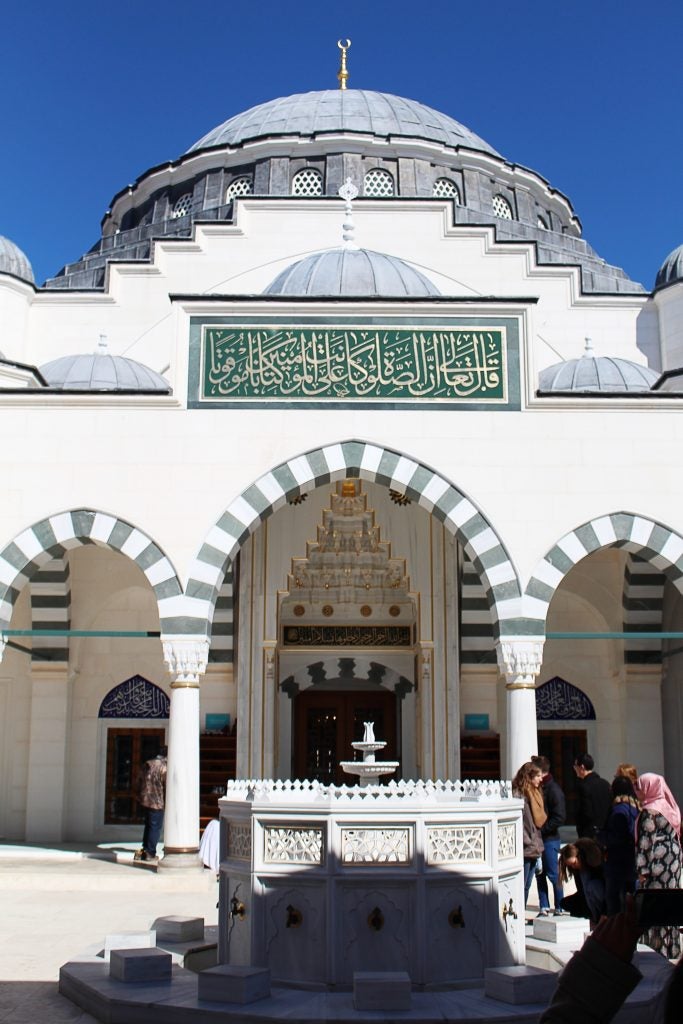Deconstructing Islamophobia and Religious Discrimination: A Domestic Immersion Experience
The popular assumption about Islam in America is that it is a predominantly Arab, immigrant identity. However, the experience I gained from my Alternative Break Program (APB), Deconstructing Islamophobia and Religious Discrimination fully dispelled that idea.
Another important lesson I learned from meeting and talking to members of the Muslim community in D.C., is that, although facts and figures are important, an even more powerful tool for fighting Islamophobia is storytelling. Until now, I underestimated the power of stories to convey the nuances and diversity of Islam, and the lasting impact they would have on my heart and mind.
Over the course of the week, my fellow students and I visited mosques, community partners, advocacy organizations, and government officials. I learned that all the Muslims we met that week drew upon their faith in a way that was unique to their identity and experience. I began to realize that Islam is comprised of people from a wide variety of identities, and that intrafaith conversations can sometimes be even more difficult than interfaith conversations. Like many other religions, Muslims also debate the meanings of scripture and disagree on practices. I realized that in order to understand the ways in which Islamophobia manifests itself, I first needed a stronger personal understanding of the lived experience of Islam.
One of meetings that affected me most was with Congressman Keith Ellison, the representative of Minnesota’s 5th District. Ellison is also the first Muslim member of Congress. He told us that some people were upset by the fact that he took the oath of office with Thomas Jefferson’s copy of the Quran. I thought this was incredibly interesting in how it problematizes the all too common idea that being Muslim is somehow opposed to being American. Ellison spoke about how faith plays a role in his work. For him, faith is important but it does not dominate his decisions. Ellison said, that while there is an institutional network that propagates Islamophobia, we as individuals can compel political change by sharing stories and appealing to common values. An example of what Ellison meant by appealing to common values came when we met with the members of Islamic Relief.
Islamic Relief is an organization that does charity and emergency response work. A few years ago, they were an essential part in providing residents of Colorado Springs with the resources they needed when they were displaced by a wildfire. Local Christian organizations were so impressed by their work, they asked Islamic Relief to help train them in disaster relief efforts. Growing up in Colorado, I was immediately struck. I wouldn’t have expected a center of Evangelical Christianity to welcome a Muslim organization so readily, but in moments of need they were able to see how people can – despite and because of their faiths – bridge the gap and help each other.
These moments gave me tremendous hope for the future. We may face tremendous obstacles overcoming Islamophobia in our current political and social climate, but there are people out there tirelessly helping to build bridges. In times of need, we share more in common than we might realize. I have resolved to be an ally that amplifies the multiplicity of Muslim voices and stories who is also willing to engage in hard conversations with people. I am grateful for my ABP experience and that it opened my heart and mind in ways that I did not anticipate.
Written by Bailey Bradford, C’19
